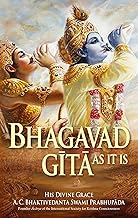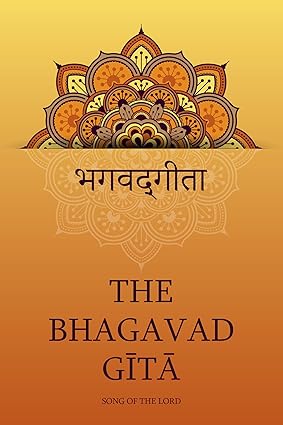The Bhagavad Gita, often referred to as ‘Gita’ is a 700-verse epic poem that forms part of the Indian epic Mahabharat . In this epic Mahabharat , it presents a dialogue between the warrior Arjuna and lord Krishna on the field of greet battle. Where he
Read More

The Bhagavad Gita, often referred to as ‘Gita’ is a 700-verse epic poem that forms part of the Indian epic Mahabharat . In this epic Mahabharat , it presents a dialogue between the warrior Arjuna and lord Krishna on the field of greet battle. Where he was going to fight with his own relatives and teachers . It provides timeless philosophical, spiritual, and the ethical guidance that transcends religious boundaries.Lord Krishna ,his charioteer and divine guide, imparts wisdom on the dharma, righteousness, and the nature of life, ultimately encouraging Arjuna to rise above his fear and fulfill his responsibility.
The Gita is divided into 18 chapters, each one has different aspect of life :
Chapter 2 discusses self-realization and the immortality of soul(atma).
Chapter 3 emphasizes Karma yoga – the path of selfless action.
Chapter 6 introduces Dhyana yoga, the practice of meditation for spiritual enlightenment.
Chapter 9 highlights devotion (bhakti) as a mean to connect with the divine.
Dharma:- Shloka 2.47 “You have the right to performed your prescribed duties, but you are not entitled to the fruits of your Do not let the results of your actions be your motive and do not be attached to inaction.”
- Karma yoga:- Shloka 18.11 “Knowledge is superior to knowledge, renunciation of the fruits of action is superior to meditation, and by renunciation of attachment, one attains tranquility .”
- Jnana yoga:- Shloka 13.8 “Those whose mind is always attached to me , who is free from desires, ever steady in practice, and whose self is subdued, is dear to me.”
- self-Belief:- Shloka 43 “One who is not disturbed by misfortunes, who is not elated by happiness, who is free from attachment , fear, and anger, whose mind is steady and resolute, is considered to be a person of steady wisdom.”
Relevance to Modern life:
The greet Mahabharat , teach us how to live in today’s modern world ,if you have any problem in your life ,you can find the solution in the Gita .It tell us some important key that are essential for humans to live a peaceful, beautiful life .
Competitive Advantages:
- Enhanced focus & Concentration : The Gita’s principles of mindfulness and detachment help improve focus and concentration, essential for effective study and exam performance.
- Improved Decision-Making :The Gita provides a framework for ethical decision-making and helps individuals make informed choices about their study strategies and career paths.
- Stress Management: The Gita offers valuable insights into managing stress and anxiety, enabling candidates to maintain a calm and composed mind during exam preparation and the actual test.
Building Inner Strength: The Gita empowers individuals with inner strength and resilience, helping them overcome challenges and setbacks that are inevitable in any competitive endeavor.
Conclusion:
The Bhagavad Gita is more than just a religious text; it’s a timeless guide to life and a valuable resource for individuals preparing for competitive examinations. By embracing the principles of Dharma, Karma yoga, and Jnana yoga, as exemplified in the shlokas mentioned above, candidates can cultivate the discipline, focus, and inner strength necessary to achieve their goals and excel in their chosen fields.
Show Less


